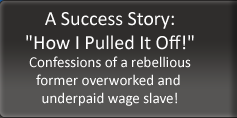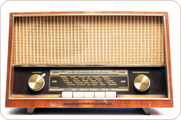
Successful Money Maker on
the Internet
of Words About My
Background
Business... And How It
Failed Miserably!
What It‘s Like to Hit Rock
Bottom!
My Life...and My Entire
Destiny!
Paid Off...My First “Internet
Job”!
Internet Industry...My
Appetite Only Grew
Business...and How it
Crashed to Pieces
to Be My LAST Soul Sucking
Job Ever!
Simple Way to Make Money
on the Net
Auctions...and Found a
Cache of Cash
to Earn Decent Money on
the Web
Job...I Was Finally Off the
Slave Boat
Home Full Time... Fulfilling
my Dream
Successful Internet Home
Business Owner
When They Try to Make
Money!
in Earning Long-Term
Income Online
Can You Start Earning
Money Online?


Free Guide : Making Money by Selling Stuff on eBay Auctions
use eBay as a platform for selling items
on the Internet and as a continual
source of income.
What sells really well online? What are the
best ways to get started? And what can
you do if you don't have any
products to sell?
This free guide explains how it all works.

marketplace where practically anyone can
buy and sell anything online (through
auctions or fixed-price sales).
![]() It's the 7th most visited site in the US
It's the 7th most visited site in the US
(after Yahoo,Google,Myspace,YouTube & MSN).
![]() eBay has 233,000,000 registered members (buyers and sellers) worldwide.
eBay has 233,000,000 registered members (buyers and sellers) worldwide.
![]() Approximately 1.3 million people from all over the world use eBay as their
Approximately 1.3 million people from all over the world use eBay as their
primary or secondary source of income (ACNielsen International Research,
June 2006).
![]() In 2006, the total value of all successfully sold items on eBay was more than
In 2006, the total value of all successfully sold items on eBay was more than
52 billion US dollars.
![]() At any given time, there are about 100 million product listings on eBay
At any given time, there are about 100 million product listings on eBay
(in over 50,000 categories) and about 6.4 million new listings are added
every day.
and sell on eBay: new listings are added every day.
Supply & Equipment
Travel
Fashion Accessories
Accessories
Video Games
Vehicles & Parts
can think of:
there are 50,000
different product
categories
Here's the bottom line: eBay is the #1 online shopping site for one simple reason:
you can find anything there.
When people want to buy something, for themselves, for their home or for their
business, new or used, they know that they'll be able to find it on eBay and
probably for a very good price (especially, via online auctions)..
on eBay auctions and gives you all the basics plus some good tips and essential
help on the way
 This strategy is great for private individuals,
This strategy is great for private individuals, beginners and for people who have zero
experience in selling or marketing over the
Internet. It lets inexperienced individuals start
small with no risks or serious expenses.
Then, as they grow their sales volume gradually, they gain more and more
experience, confidence and… yes, money and have the tools to turn it into a
full-time income source (if they wish).
Search your home for items that you no longer need and will probably never
use again. Some good places to start your hunt for these hidden treasures are:
your attic, storage unit, closets, basement, garage, back yard, etc.
"What 'Home Items' can I Sell Online?"
Pretty simple: do you have clothes that you never used or will never use again?
Sure you do.
Do you have common items like books, music, sports gear, toys, baby items or
other usable stuff that you hardly touch any more and just collect dust in your
cellar? Absolutely!
Everybody has at least tens of such items in his/her home.
Some people have hundreds of such items, without even realizing that they can
turn what they see as “useless junk” to cash.
Take a few minutes and browse
eBay's categories.
It will give you lots of ideas of what you can sell and for how much.
How to Get Started
![]() Join eBay as a member.
Join eBay as a member.
The actual joining is free; you pay eBay a fee only when you list actual
items for sale.
![]() Read eBay's basic tutorials on how their site works, how to open a listing,
Read eBay's basic tutorials on how their site works, how to open a listing,
how to sell, etc.
These tutorials are free and they'll give you all the basics that you need in
order to get started.
![]() Sell something from your home – anything.
Sell something from your home – anything.
List a couple of items for sale for "training" purposes.
![]() Gain some experience on the technical side, learn to better understand
Gain some experience on the technical side, learn to better understand
the process, make a few small sales and reach a point where you feel
comfortable with the system.
![]() After you feel that you and eBay live in peace and harmony and after you
After you feel that you and eBay live in peace and harmony and after you
have gained some experience, start listing your more valuable items.
 The term "collectibles" may sound to some
pretty scary and intimidating. You immediately
visualize a Picasso original or a really rare
antique coin and the chance that you may
own one of these is almost non-existent.
The term "collectibles" may sound to some
pretty scary and intimidating. You immediately
visualize a Picasso original or a really rare
antique coin and the chance that you may
own one of these is almost non-existent.
However, this common notion comes from one major reason: people's ignorance.
Read this carefully: you probably have at least some valuable collectible items,
without even knowing it.
Regardless of your age, your parents probably have tons of collectibles that can
sell for big bucks - and they're probably not aware of it either. The reason?
They don't see these items as “collectables”.
After finishing this guide, take a good hard look at
eBay's collectibles category.
It includes all the sub-categories and the sub-sub categories of things that
people buy on eBay for their personal collections.
Some of the items (and the categories in which they're listed there) may
surprise you; and the prices that these items sell for may even shock you.
However, it's a positive shock, since it will open new money-making
opportunities for you.
"What Types of Collectibles can I Sell on eBay?"
Such collectible items may include old records and books, clothes from your
past, memorabilia from your childhood, stamps, coins, dolls, Pez dispensers,
comics, autographed items and so many other hard-to-find items.
Vintage items can sell pretty fast and for premium dollars.
Things like vintage clothing, posters, jewelry, watches, toys, advertising items,
pens, military-related items, old radios, postcards, religious items, ashtrays,
old tools – and so much more.
Actually, any old item will probably sell online (and for a very good price).
Why? Very simple: because people collect everything and they're willing to
pay top dollar for a nice addition to their collection, especially if they've been
looking for such an item for a very long time.
What Qualifies as an “Old” Item?
Well, “old” is pretty hard to define; however, if you have items from the 80s,
not to mention from the 70s, 60s, 50s or older – you're at a fantastic
starting point.
"How do I Know if my Items Will Sell and for how Much?"
You can't know for sure before you actually list them; however, here's
something that can give you a pretty good idea.
Let's say you have an old radio and you want to know what the odds are
that it will sell on eBay and how much you may get for it.
All you have to do is go to eBay's
Radios category and start sniffing around
(go ahead – take a look!).
When you browse the category, ask yourself the following questions:
![]() How many items have actual buyer's bids on them?
How many items have actual buyer's bids on them?
It will give you a sense if this type of item has real demand.
![]() Do such items generate a high number of bids?
Do such items generate a high number of bids?
More bids = more interest = more demand = higher profits.
![]() What's the price range of the bidded items?
What's the price range of the bidded items?
Again, it will give you a good direction regarding what to expect when
you list a similar item.
![]() What's the potential highest price you can get for such an item?
What's the potential highest price you can get for such an item?
Go to the top of the category page. You'll see an option to sort the
listings by various parameters.
Choose the "Sort by: Price: Highest first" option and you'll see the items
that are being offered from the highest price to the lowest.
Now you have a better understanding of what to expect.
"What do I do When I Run Out of Old Items?"
After you finish selling anything you can put your hands on, from your own
home, then comes the more tricky part.
After all, the “home well” will eventually dry up and your money-making
eBay activities must keep going – right?
Here are a few sources where you can get more valuable items.
![]() Garage Sales – A great source to get valuable collectible items at bargain
Garage Sales – A great source to get valuable collectible items at bargain
prices.
![]() Flea Markets – Another fantastic arena to get hard-to-find items cheaply.
Flea Markets – Another fantastic arena to get hard-to-find items cheaply.
![]() Second Hand Shops – Some second hand shops offer great items for a
Second Hand Shops – Some second hand shops offer great items for a
very low price.
![]() Friends & Family – Why not chip in with your friends and family members?
Friends & Family – Why not chip in with your friends and family members?
You can offer them a 50/50 revenue split and easily recruit them as your
partners.
You'll do all the selling; they get easy money.
Who can say no to such a sweet offer?
![]() Seniors / Retirees – Most senior citizens eagerly look for good ways to
Seniors / Retirees – Most senior citizens eagerly look for good ways to
make some extra money after retirement – and it's not surprising.
The problem? There aren't too many opportunities with good earning
potential and low risk for them.
You, with your eBay activity, can offer them a real risk-free opportunity to
make real money.
They can offer you rare old items that they usually have, from DECADES
ago – a real fortune!
You can offer them the same 50/50 revenue split discussed in the previous
point and easily recruit them as your loyal partners.
Isn't it a wonderful, mutually beneficial partnership?
Places to Stay Away From
• Antique shops
• Professional vintage dealers
• Specialty stores
Why should you stay away from these places?
Your eBay success relies on the old (but true) motto "buy low, sell high"
(assuming you need to pay to put your hands on good items that will sell easily).
Shop owners and antique dealers are professional sharks.
They will happily sell you whatever you wish to buy from them, but for its true
market value (or higher, if possible).
Great deal for them – bad deal for you.
Stick to sources where you can get items either free or for a very cheap price.
Don't be tempted to buy great pricy items, hoping that they will sell for a much
higher price online.
 Lots of people create art or have an artistic
hobby or craft. eBay can be an ideal place to
sell their creations and for good money too.
Lots of people create art or have an artistic
hobby or craft. eBay can be an ideal place to
sell their creations and for good money too.
Here's a partial list of things that people
create and can sell on eBay.
![]() Art: paintings, posters, prints, digital art, drawings, photography,
Art: paintings, posters, prints, digital art, drawings, photography,
sculptures, etc.
![]() Crafts: Basketry, bead art, cards, candle & soap making,
Crafts: Basketry, bead art, cards, candle & soap making,
ceramics/pottery, crocheting, cross-stitch, dolls, embroidery, fabric,
floral crafts, glass, gourds, any handcrafted items, hand-painted items,
knitting, lace making/tatting, rug making, leather, macramé,
metalworking, mosaic, needlepoint, paper crafts, quilting, scrapbooking,
sewing, weaving, woodworking, yarn and many more…
![]() Jewelry: Body jewelry, bracelets, children's jewelry, earrings,
Jewelry: Body jewelry, bracelets, children's jewelry, earrings,
ethnic designs, hair jewelry, any handcrafted items, jewelry boxes, beads,
pins, brooches, rings and many more…
![]() Clothing & accessories: Handmade fashion accessories, handbags,
Clothing & accessories: Handmade fashion accessories, handbags,
purses and more.
![]() Home & Garden related: Home and garden décor, wall hangings,
Home & Garden related: Home and garden décor, wall hangings,
bedding, linens, pillows, rugs, furniture, tiles and more.
This is a very limited list.
If you do any of the above, why not use eBay as your own craft shop?
as a source of regular income.
This figure probably doesn't include the people who sell on a “part-time” basis
and their number is much higher.
Bottom line: a lot of people make nice profits from their eBay business.
How much you can make depends solely on your ability to get sellable items.
If you have access to good items on a continuous basis you definitely can
make a lot of money – anything between three to five figures per month.
Some professional power sellers make six and even seven figures per month,
every month, but these are the top 1% - not the 99% mainstream.
day job and live happily only from their eBay business.
Many others do it only as a secondary source of income while maintaining their
main jobs.
However, you can also get your money from buyers via credit cards, bank
transfers, postal orders or good old-fashioned cash.
Actually, you decide on which payment methods to use and which not.
• Insertion fee - for posting an item for sale (starts from $0.10 per item).
• Final Value fee – which you pay only if the item that you advertised has
been sold (starts from 8.75% of the closing value).
knowledge, professional background, training, skills or experience.
Practically anybody can do it.
comfortable home environment with your computer.
When you sell something on eBay, you get the money immediately after the auction is over – usually by Paypal, from the buyer.
you can do it full time, part time
or on a spare-time basis.
gradually, on a step-by-step basis.
You set your own pace.
It can turn pretty quickly from a
part-time / extra money source –
to a full-time / major income source
No items? No eBay option!
practical tips, guidance and shorten the learning curve for any beginner.
![]() Auction Training Course - A fantastic
e-book for newbies who want to
learn the essentials (and more) fast. Written by John Gardner, a well-known
eBay expert and a Powerseller himself.
Auction Training Course - A fantastic
e-book for newbies who want to
learn the essentials (and more) fast. Written by John Gardner, a well-known
eBay expert and a Powerseller himself.
![]() The Silent Sales Machine Hiding on eBay - There's a good reason why
this beginner's guide sold almost 100,000 copies. It helped a lot of beginners
The Silent Sales Machine Hiding on eBay - There's a good reason why
this beginner's guide sold almost 100,000 copies. It helped a lot of beginners
making the transformation from a frustrated wannabe to a successful
eBay seller.
![]() Auction Bytes – A magazine for internet auction users.
Auction Bytes – A magazine for internet auction users.

